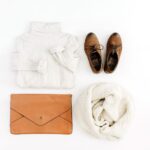Lifestyle research stands at the boundary between a number of traditional academic disciplines, developing expertise from sociology and the social sciences in areas as distinct as business, retailing, marketing, understanding of consumers, and health and social care. The very diversity of fields and disciplines with an interest in lifestyle research creates complexity in an already dynamic and fast-changing area of research. Multifaceted approaches are used, alongside a variety of academic and business conventions, but typically, lifestyle research focuses on subgroups within the general population defined by age, occupation, religion, sexuality, medical conditions, or behaviors.
In terms of business research, this market segmentation of the consumer market is a key use for lifestyle research. As the importance of the consumer in determining the success of business operations has become increasingly clear to businesses, so the importance of lifestyle-based market segmentation has increased and the importance of ongoing cultural change has been recognized. Ongoing social and cultural change, both in purchasing dynamics, in related group behavior, and in lifestyle decision making are illuminated by lifestyle research but also act as a key source of information for strategic planning within business and for the ongoing development of successful corporate strategy.
The links between lifestyle research and the development of successful marketing strategies are currently being discussed within the academic literature, both from a management perspective and from a social science perspective. The development of an increasing understanding of the diverse research that contributes to this area of study is key to the ongoing development of successful and strategic business development. Typically, research in this area is grounded first in the concept of lifestyle and relates this to various aspects of an individual or group lifestyle. Key themes that may influence lifestyle include activities/behavior, values and attitudes, individuals versus groups, group interaction, coherence, recognizability, and choice.
Within this definition, lifestyle research may focus either upon the implications of belonging to a certain group or upon the implications of certain lifestyles, including areas such as the role of lifestyle in the management of clinical conditions or the impact of a voluntarily adopted lifestyle on other areas of an individual’s life. In business terms, lifestyle research is used both to classify consumers in terms of patterns of behavior, purchasing, etc., and as a way of looking at lifestyle as a key factor in the generation of new products, services, etc. One important distinction lies between research that attempts to identify causal relationships between a lifestyle and the development of certain patterns of health and behavior and an alternative pattern of lifestyle research that evaluates the impact of lifestyle changes.
Both have considerable implications for business, being directly linked to the development and promotion of goods and services. The lifestyles assessed may be proscriptive-and much of the research in this area lies in health-or broader changes that reflect the development of society, the economy, and the workplace. Business research generally focuses upon this latter scenario, where the intertwining of cause, effect, and incremental change provides fruitful ground for research. One useful example of this intertwining is the relationship between the availability of processed ready-meals and the lack of availability of time for cooking. Does a lack of time trigger the demand for ready-meals? Or does the availability of ready-meals facilitate broader changes in lifestyle that tend to mitigate against the “ring fencing” of time to devote to cooking?
The answer to such questions is unlikely to be simple-and in this example the ongoing development of skills within the consumer group would play a contributing role-but this example illustrates the complexity of cause, effect, and contributing factors within lifestyle research. Lifestyle retailing is an additional important area of study, where the promotion of a “lifestyle package” linked to a brand, a group of products, or a service forms part of the marketing strategy for many companies. The creation of aspirational brands within a consumer economy-be they products or services-is a key driver for many businesses. Typically, however, this builds upon initial market-segmentation work, and successful lifestyle retailing strategies tend to indicate a very well-researched and clearly identified market-segmentation strategy.
Building upon this, so-called subcultures of consumption have been a focus for some additional study focusing around ideas and theoretical frameworks from general consumption literature and applying these in a variety of servicescapes. A more recent approach to segmentation, for example, has included Web-based-related lifestyle research, where access, enthusiasm, and propensity to use internet resources formed a key defining a part of an individual or group lifestyle and hence the basis for recent research.






